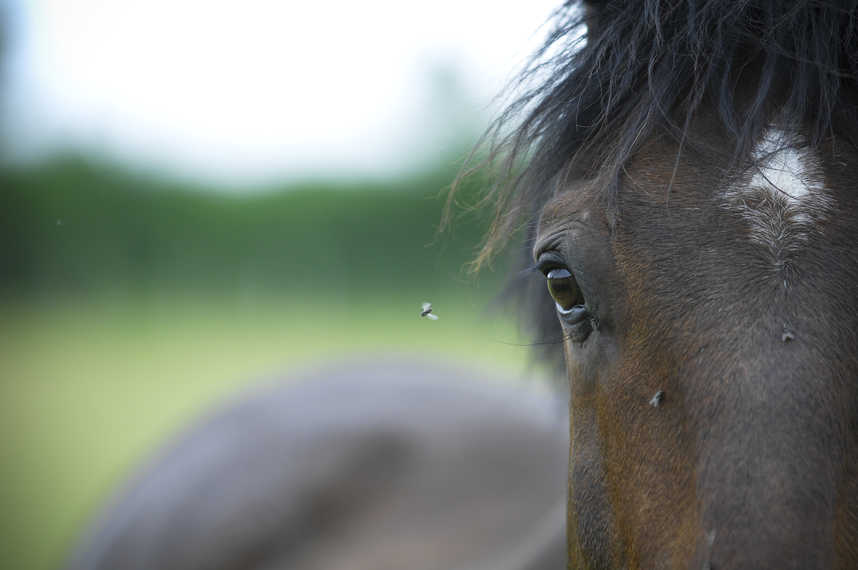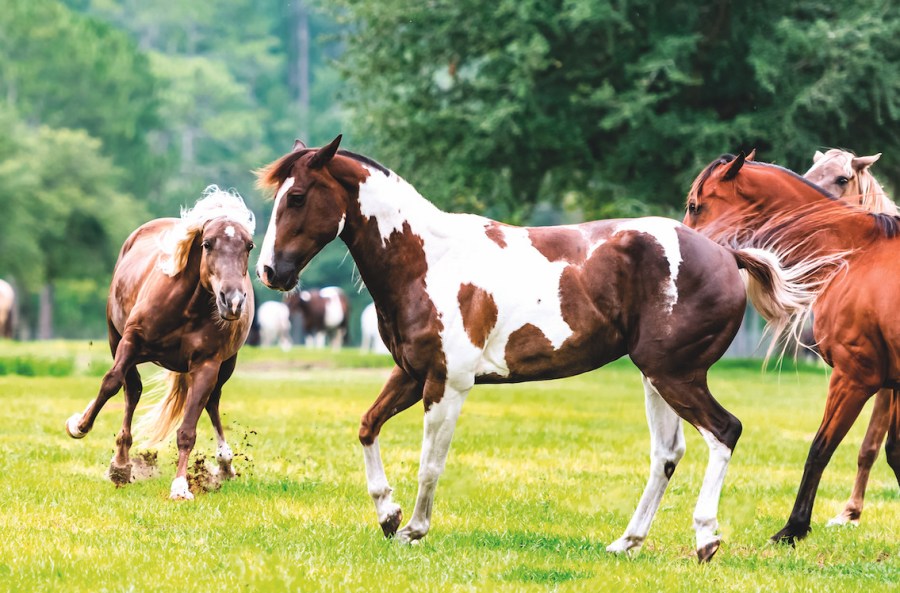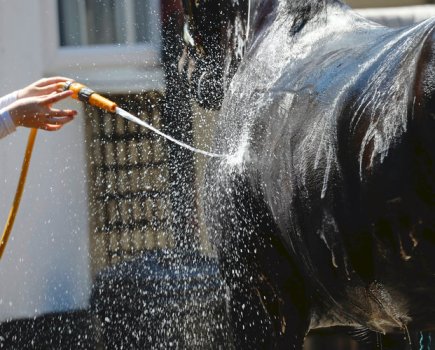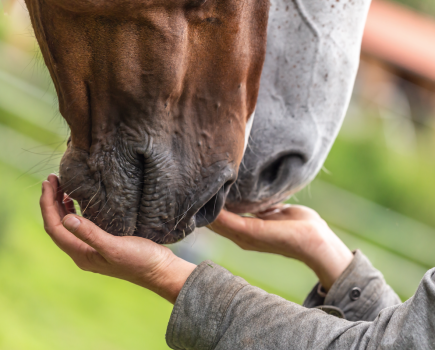Summer can trigger a range of health issues for horses. Aoife from XLVets Equine has put together this quick and handy guide to preventing some of the key problems she will see during the hot season, so that Your Horse readers can take care of their horse or pony to the best of their ability.
Dehydration
Why is it important for horses to have fresh water constantly on offer and how can horses be encouraged to drink?
Dehydration can lead to impaction colic due to the faeces becoming abnormally dry in the large intestine. Fresh water must be constantly available so that your horse is never thirsty and always has a steady flow through his intestine and kidneys. Bear in mind, however, that Dr David Marlin has warned that drinking water alone isn’t always enough to ensure hydration in equines.
Sprinkling a handful of table salt into a horses feed can encourage them to drink more. Electrolyte supplementation should also be considered if excessive sweating has occurred.
Soaking hay and wetting feed can also help to increase a horse’s daily water intake. Soaking hay also helps to reduce its water-soluble carbohydrate (WSC) or ‘sugar’ content, which in turn reduces the number of calories it provides and may be particularly suitable for equines who need to lose weight or put on weight easily.
Here are four ways to keep a horse hydrated when the weather is hot.
Flies
 What can horse owners do to deter horse flies and how should fly bites be treated?
What can horse owners do to deter horse flies and how should fly bites be treated?
A good fly repellent is essential and should be applied to your horse on a daily basis. If your horse gets bitten by a fly and the bites are swollen and painful, cold hosing can help.
If the bites are very itchy or become infected then veterinary attention may be required to supply anti-inflammatory or antibiotic medications. Call your vet for advice.
Allergies
What are some horses allergic to and what can owners do to reduce the chances of their horse being affected?
The most common things that horses are allergic to can be divided into three groups:
- Skin allergens, like flies, midges and mitres.
- Respiratory allergens, like airborne particles of dust and pollen.
- Ingested allergens found in certain forage and food.
Allergies in susceptible humans can cause a life-threatening anaphylactic reaction, but this is extremely rare in horses. Symptoms of an allergy can include a cough or hives on the horse’s coat.
Keeping the horse away from the allergen or protecting them from it with barriers like rugs or fly screens in stables may help prevent a reaction.
Read more about the causes and treatment of allergic reactions in horses.
Laminitis
How can owners of laminitic horses and ponies reduce the risks of a flare up of laminitis?
You need to strictly adhere to a grass-free and low-sugar diet for any horse or pony prone to laminitis. It’s also wise to rule out any underlying hormonal or endocrine causes like Cushing’s disease or Equine Metabolic Syndrome.
Laminitis affects one in 10 horses. Learn more prevention tips and how to spot the signs of laminitis early.
Sweet itch
What are the symptoms of sweet itch and how can horse owners keep on top of it?
Symptoms of sweet itch in horses include intense itching that results in rubbing of the roots of the mane and tail. This is due to a biting midge that only feeds at dawn and dusk so stabling at those times is advised as well as fly rugs and a good insecticide (for example Deosect®).
Equine vet Leona Bramall discusses preventative measures and treatment for sweet itch here.
Riding in warm weather
 How can I keep my horse safe from the heat and help them recover after exercise?
How can I keep my horse safe from the heat and help them recover after exercise?
If you’re out at a competition, horses should be kept in the shade wherever possible — for example under a tree or in a well ventilated trailer or lorry.
If your horse does overheat while competing, then washing or hosing them off thoroughly with cold water is advisable. There many myths surrounding the best ways to cool your horse down when he’s hot, and it is a myth that scraping water off while cooling is the best course of action, says Dr David Marlin.
To compensate for losses from sweating, horses can be given an electrolyte supplement in their water or feed, or via an oral paste in a syringe.
Riding on hard ground
What are the dangers of riding on hard ground and what can owners do to reduce the risk of impaction injuries?
Hard, compacted ground causes concussive stress and strain on an equine’s bones, joints and ligaments. It is important to be aware that the ground becomes firm during long sunny spells, and so if you regularly ride your horse in the field or out hacking, be aware of the surface you’re riding on and proceed with caution.
A slower pace places less strain on the horse’s body. It is a good idea to vary the terrain you ride on, for the benefit of your horse’s health and soundness. so ride on a surface (such as a gallop track or in an arena) sometimes too.
Sunburn
When and why should owners apply sun cream to their horses?
Horses with areas of white hair in their coat usually have pink or non-pigmented skin underneath. This is especially seen in horses who have white markings on their faces or white legs. These pink areas are prone to get sunburnt, so with warmer, sunnier weather comes an increased risk of sunburn and photosensitisation in horses.
Sun cream should be applied to prevent sunburn on sunny days. Alternatively, you might choose for your horse to wear a mask or fly rug that covers their vulnerable areas, or stable them during the day and turn them out at night, in order to protect them from the sun.
Sun cream shouldn’t be used around the horse’s eyes, so a UV filtering face mask is particularly useful for protecting this area of the body.









